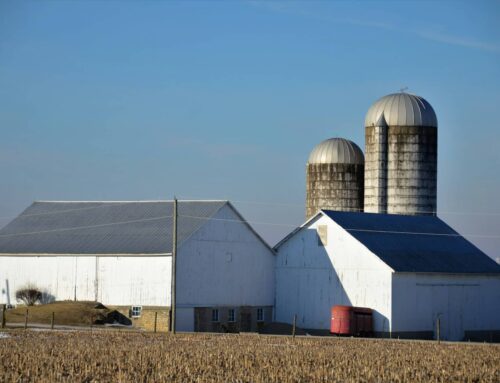With the taxpayer costs of climate change growing daily, Congress must utilize the 2023 farm bill to provide agricultural businesses the opportunity to mitigate the effects of climate change. To-date, federal agricultural policy has not directly addressed climate change.
While climate change was once separate from the farm bill, it is becoming clear that you can’t discuss risk management in agriculture any longer without addressing production and marketing risks exacerbated by climate change. More frequent and intense droughts, floods, and hurricanes are increasing uncertainty for producers while increasing taxpayer costs in federally subsidized crop insurance and other financial safety net programs.
For the agricultural sector to reduce its contributions to climate change while increasing its ability to mitigate the effects on both agriculture and the public there needs to be a different perspective of the issue. The U.S. can’t simply spend its way out of climate challenges. Policies must also change. Counterproductive subsidies making climate change worse must be eliminated. And federal policy and regulatory barriers that discourage or prevent farmers and ranchers from adapting to new production realities must be reformed.
How to achieve farmer-and taxpayer-friendly climate solutions in the 2023 farm bill:
1. Stop federal policies and ax wasteful subsidies contributing to the problem.
- Sending unlimited crop insurance subsidies to certain agricultural producers and shifting unnecessary risk onto taxpayers’ backs does nothing to help the agricultural sector prepare for the next drought or flood. Wasteful subsidies must be reined in, and federal crop insurance and commodity programs should be reformed to work in concert—instead of at odds—with climate and conservation goals.
- Taxpayer subsidies in federal crop insurance promoting crop plantings in risky areas, such as on drought-and flood-prone land, must be eliminated.
- Taxpayers should not subsidize crop plantings on wetlands, native grasslands, and other carbon-rich land.
- Stop bailing out bad actors by eliminating no-strings-attached post disaster ad hoc subsidies that reward producers that fail to take steps to improve their resilience to future droughts, floods, and more.
2. Reform policies that discourage climate adaptation and mitigation.
- Remove disincentives for conservation, for example, by allowing lower crop insurance premiums for producers implementing risk-reducing conservation practices.
- Improve data collection and data sharing on the effect conservation practices have on achieving resource goals and farm profitability.
- Include climate resilience as an eligible resource concern in farm bill conservation programs.
3. Provide smart federal investments in real climate solutions.
- Federal government should not create new, unnecessary programs but rather build off existing ones to encourage adoption of measures reducing climate risks.
- Where private markets, such as carbon credits, can provide incentives for producer adoption of climate resilience measures, the federal government should not duplicate or undermine these unsubsidized efforts.
- Investments in agricultural conservation programs, such as those provided in the Inflation Reduction Act, should aid agricultural businesses in mitigating the effects of climate change and not be redirected to new or existing income subsidy programs.
- Prioritize conservation investments in policies and programs proving real, documented climate, water, soil, and other public benefits and those with the best return on taxpayers’ investment. Taxpayer dollars can be stretched further with conservation technical assistance, agriculture extension, and cost share initiatives that benefit multiple producers, as opposed to large subsidy payments to individual agribusinesses who would implement certain practices on their own, without taxpayer dollars.
If enacted, various provisions within the following bills would help achieve climate resilience goals outlined above, in addition to saving taxpayers tens of billions of dollars:
- Rep. Blumenauer’s (D-OR) Food and Farm Act
- Rep. Pingree’s (D-ME) Agriculture Resilience Act
- Senators Booker (D-NJ) and Lee’s (R-UT) Environmental Quality Incentives Program (EQIP) Improvement Act
- Senators Klobuchar (D-MN) and Thune’s (R-SD) Agriculture Innovation Act
- Crop insurance and farm commodity subsidy reform efforts led by Sen. Shaheen (D-NH) and Sen. Grassley (R-IA), in addition to those recommended by the Congressional Budget Office and the Government Accountability Office
Incorporating climate resilience into the next farm bill should be a priority for Congress. Spending more taxpayer dollars alone will not solve climate challenges. Real climate solutions will also require policy change.










